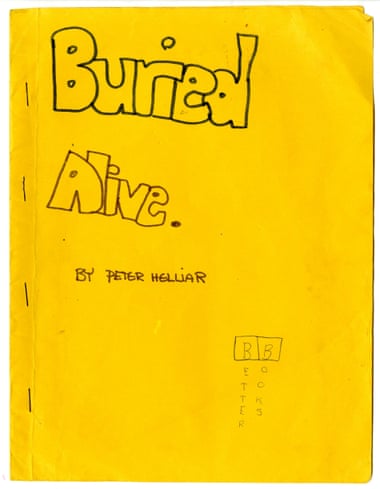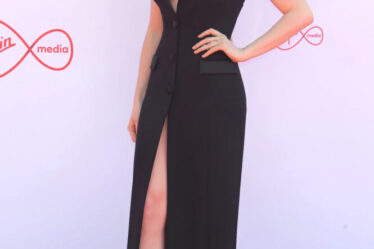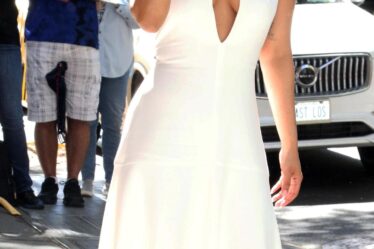
If you’ve turned on a TV any time in the past 20 years, odds are you’ve seen Peter Helliar. The comedian cut his teeth on Rove in the noughties and is now one of the hosts of Network Ten’s The Project, a chair he’s sat in for the past eight years. But for his latest venture Helliar is trading the small screen for the sound studio. He recently began hosting Family Feud: The Podcast, an audio version of the gameshow of the same name. On every episode, two prominent Australians go head-to-head, with names such as Waleed Aly, Tony Armstrong and Osher Günsberg all battling it out for glory.
Crucial to Helliar’s many jobs are the notebooks in which he writes his ideas. In fact, notebooks of all kinds are cherished items to the media personality – he’s held on to the books he “self-published” as a kid and still aches for a notebook he once lost overseas. Here, he tells us why these journals become more valuable the more you use them.
What I’d save from my house in a fire
I would save the books I wrote when I was in primary school. I started my very own publishing company called Better Books. They were stapled pages with badly drawn pictures complete with grammatical errors and huge narrative potholes. I feel a connection with my school-age self through these books, which my mum kept in our garage all these years. All my influences are in there: Star Wars, Back to The Future, Indiana Jones, friends and sport – one story has me winning the 1986 Davis Cup by serving a hand grenade to Stefan Edberg.
These books were not only my gateway to writing but also performing, as I would read them to the class and feed off their laughter. There is also a weirdly grim book called Buried Alive, which only as an adult I’ve come to understand was a reaction to losing my cousin, Matthew, to leukaemia.
My most useful object
My most useful items are pens and notebooks. Yes, I use my laptop and will often rely on my notes app to jot ideas down, but I have always loved the endless possibilities that a blank page presents. I genuinely find a piece of white paper exciting. I make sure I write with a pen quite often as my brain seems to work a little differently when I do.
Whenever I begin working on a new standup show, I always buy a new distinctive notebook and I carry that around with me wherever I go, which is dangerous (see below). My wife, Brij, is always on me for the amount of notebooks I have and my refusal to throw any of them out. I’m not sure if I’m being silly for not tossing some of them, but there have been enough times when I look into an old notebook and rediscover a seed of an idea that I can now grow into something more substantial. That’s my excuse anyway and I’m sticking with it.
The item I most regret losing
I travelled overseas by myself when I was 18. I spent time in Scandinavia, the UK and (briefly) Germany for Oktoberfest. When I was in the UK, I decided that I would try standup. I bought a notebook and began writing ideas for routines and jokes. Notebooks are funny in that the more you write in them, the more valuable they become to you. I ended up coming home earlier than I thought I would, so I never tried standup in London – but I continued to write ideas and more jokes.
A couple of years later I met up with a mate for lunch and a couple of drinks. I took my notebook because I thought if he left me waiting I could people-watch and write down my observations. By now you have probably guessed what happened: I left the notebook in the back of a taxi. I was devastated. That notebook represented my future. All those amazing thoughts, genius ideas and killer punchlines.
Of course, I eventually got over it and began a standup career, which has gone pretty well. I also got to the stage where the gags and routines in there were probably amateurish and not as groundbreaking as they were in my head at the time. With that said, it would be nice to flick through and see what my first foray into writing comedy was like.



